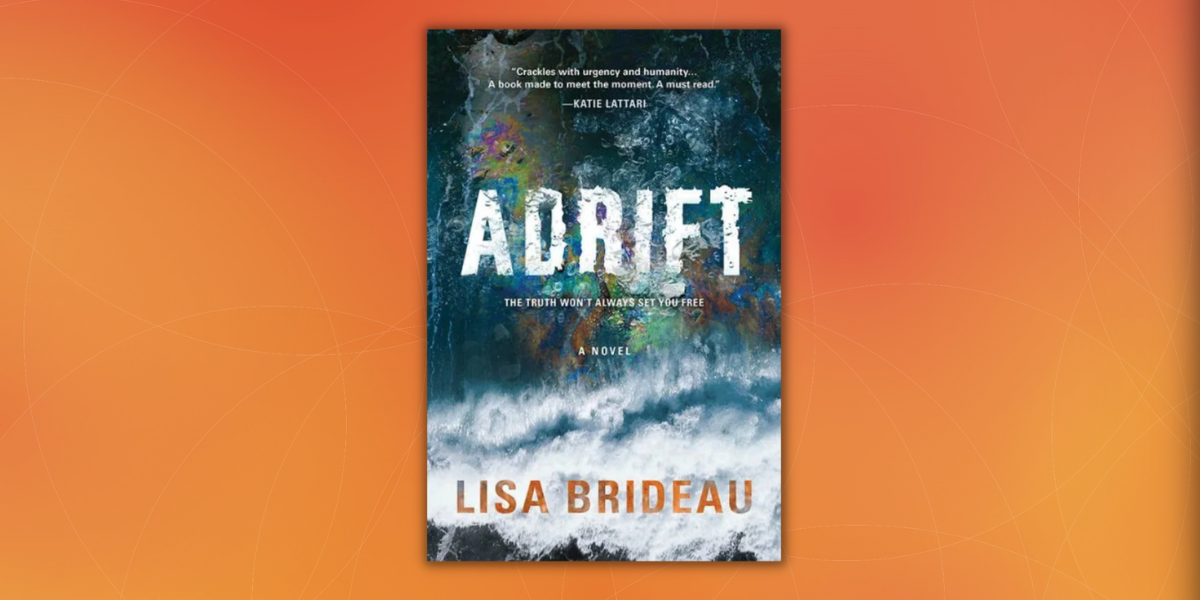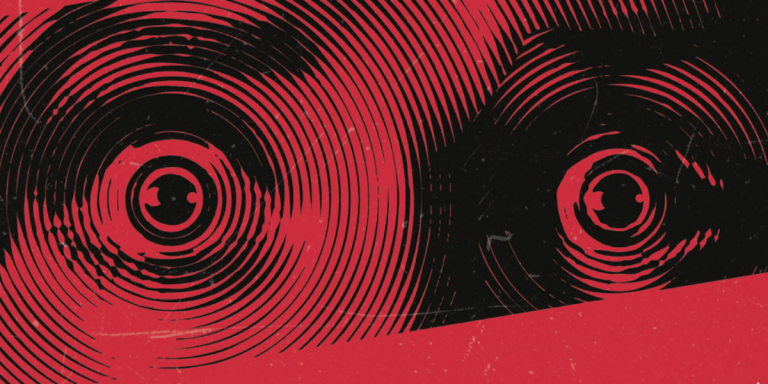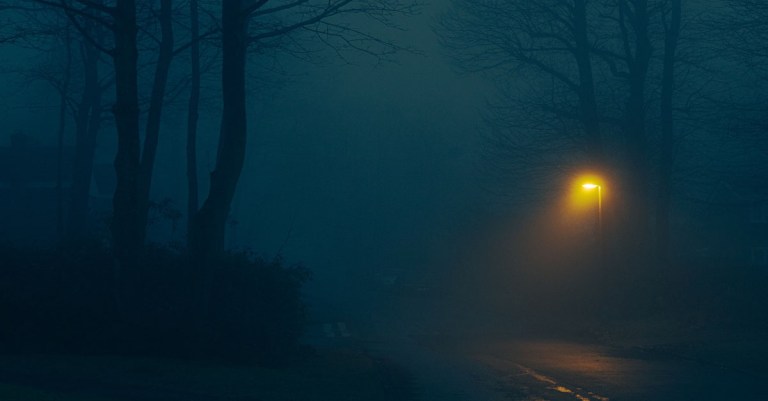Read the Expert: Adrift by Lisa Brideau
 1
1
The boat bobbed in the water, going nowhere.
She read the note taped to the counter twice and still didn’t understand.
This is the only way out alive.
It felt like sea urchin spikes were being jammed into her temples. Closing her eyes against the headache, she stumbled, slamming against the stove in the minuscule galley. Metal pots clanged together. She flinched. The movement of the boat and the dizziness from her headache intertwined, both eager to push her to her knees.
She willed time to slow so she could sort out what was happening, but the waves lapping against the hull persisted in the same unrelenting rhythm.
Leaning on the counter, she forced her eyes open and stared without recognition at the long fingers and neatly trimmed nails in front of her. The hands weren’t hers, weren’t familiar at all.
Nothing was familiar.
She felt sick, didn’t know why. When she tried to recall the previous day, to remember what she’d done to cause this, her mind served an expanse of blankness. She groped for some recollection beyond waking up and staggering out of bed minutes ago. Anything. But it was all gone: how she’d come to be in the cabin of this little boat, who she was, her name.
She gripped the counter and held on to the edge designed to keep things from sliding off in turbulent waters. Tried to focus on the typed letters marching across the paper. Movement above the sink caught her eye. The note forgotten, she put a finger on the mirror, then on her cheek to confirm what she was seeing.
A stranger’s face.
She dropped to her knees. Her body clenched, threatening to vomit but unable to. Dragging the palm of a hand across her dry lips, she sat back, closed her eyes, and shut out the fact that she didn’t recognize her own face. She focused on the rocking of the boat. That sensation was familiar. The rigging creaking outside: that sound she knew. She was on a sailboat. She knew boats. She knew.
That wisp of familiarity let her breathe. She extended the hands she didn’t know, inspecting them through squinted eyes. Turning them palm up, shaking, she saw hardened callouses, evidence of labor she couldn’t remember.
Putting the hands—her hands—on the varnished floor, she steadied herself.
“Okay.” Her lips tightened into a thin line. The voice was wrong too.
She traced fingers along the back of her neck. Working them through her long hair, she inspected her scalp, hands trembling but methodical. No sign of injury. No reason for the intense throbbing behind her temples, for the blankness. She grabbed the edge of the wooden counter and heaved herself up. A flame flashed across her right shoulder.
“Fuck!” She hugged the arm against her torso. Ribbons of pain reached down to her hands and made her vision fade at the edges. Tears formed but she wiped them away, clenched her jaw, and stood straight. She tore the note off the counter and read it again and again and again.
There are pills in the drawer for the headaches.
You want answers, but this has been done to keep you from them.
This is the only way out alive.
Start over.
Don’t make yourself known.
Don’t look back.
She perched on the bow of the sailboat, her bare feet stuck to the fiberglass hull, keeping her from sliding into the ocean and sinking to the bottom. The headache continued to pulse, enveloping her in a bubble of pain before subsiding and letting her experience the world. In and out, a tide reaching for the shore until finally the stabbing in her temple vanished. She opened her eyes and braced for the pain to return, but it didn’t. A sound halfway between a laugh and a cry escaped her. Nearby, a cormorant squawked in reply and took off.
The boat was anchored next to a cluster of forested islands that shot out of the ocean with a sense of urgency. Trees towered at the edge of low cliffs as if they might teeter over into the sea in a strong wind. It was beautiful and empty and unfamiliar.
She watched the closest island disappear bit by bit, erased by the fog. Had her memory loss been like that, or had it all gone at once? Had she felt the emptiness expand and take everything, everyone?
She wrapped her arms around her legs, put her head on her knees, and wished she was a barnacle on the hull.
A scrawny seagull landed clumsily on deck a few meters away. He struggled to stand, favoring one deformed foot. They eyed one another.
She rose. As she walked along the edge of the boat to the cockpit, her legs accommodated the gentle rocking with unsettling ease. She rummaged in the galley and returned with a tin of sardines. The seagull kept his distance as she tossed a chunk of oily fish his way. It hit the deck and the seagull hopped forward, gobbling it down just before it went overboard. Setting the tin on the deck, she backed away. He devoured the fish in less than a minute and flew off.
It was time to face her own situation.
Inside, she downed a glass of water, the tang of plastic and chlorine replacing the stale taste of her dry mouth. She read the note again, hoping to understand better now that her head wasn’t killing her. The note implied her memory erasure was deliberate. Impossible—unless that was just another thing she’d forgotten. Putting the note on the counter, she smoothed a ragged edge with the tip of a finger and then turned her back on it and started searching.
The first drawer she checked contained two envelopes marked “Important,” which started her heart racing, but she set them on the table unopened. Instead, she emptied every drawer, cubby, and compartment on the boat. Anything that wasn’t clothing or boating gear she put on the table as she found it. When the search was complete, she folded herself onto the bench and faced the meager collection of objects. Something here had to explain what was going on.
A library of sailing and navigation books. Blank notebook. Five hundred dollars in twenties, Canadian. A bottle of white pills, unlabeled, each tablet imprinted with a “c” in a square.
Then there were the two envelopes held together with a rubber band, “Important” scribbled on the front in thick black ink. The first contained a sheet of paper with bank account details and a bank card—Bank of Cominotto, Malta. Also a Province of British Columbia driver’s license—issued two months ago. The photo showed a woman with a square face, sharp nose, straight black hair. She glanced between the photo and the mirror a few times to confirm it matched. Name: Sarah Jane Song. She’d never heard the name before.
Birth date: January 20, 2004. Leaning over to the boat’s instrument panel, she looked at the date: July 5, 2038. The date didn’t surprise her, didn’t seem wrong, but it also didn’t bring up any memories of the previous day or any others. She did the math: thirty-four years old—another thing she should know but didn’t.
The second envelope contained documents for the boat, Sea Dragon. An operator’s license, ownership papers, radio operator license—all in the name of Sarah Song.
She was not Sarah Song. It didn’t fit. Shoving all the documents in a drawer, she slammed it shut to avoid the growing temptation to throw Sarah Song into the ocean. She turned to the collection of navigation charts. They were new, still keen to fold shut according to their original shape. A shard of jealousy jabbed her, that the charts had more memory than she did. Spreading the first chart flat, she saw someone had helpfully circled her anchor spot. How kind. She was in the Pacific Northwest, tucked into the remote archipelago of Haida Gwaii off the coast of British Columbia, south of Alaska.
Her ability to read the chart with ease gave her pause. Running a hand across it, she noted all the circles with plus signs clustered around the shoreline. Underwater invisible hazards, she knew. If she stopped and listened for it, she could hear wind whistling through the rigging, the anchor chain clinking as the boat swung around with the tide. None of the sounds scared her; if anything, they comforted her.
Her gaze slid over the rest of the map, reading place names, waiting for something to pop as familiar. T’aanuu, Windy Bay, Gwaii Haanas, Hotspring Island, Hecate Strait.
Nothing.
Looking through the porthole at the wild, forested island nearby, she wondered why they’d chosen this spot. She wanted it to mean something, to be a clue, but if it was, she couldn’t see it.
Someone had taken her memories, her very self. Whatever remained of her was supposed to, what, live on this boat forever? Swim to shore and live in the woods?
Start over. It felt impossible.
To quell her unsettled stomach, she filled another cup at the tap, drank it, then went to refill it. The tap gurgled, made a choking noise. She slammed the lever to turn it off. Frozen, hand on the tap, her heart sank. She knew what that sound meant.
“No, no, no.” She repeated the word over and over, until it was no longer a word, just an acoustic representation of frustration.
Snatching an empty metal water bottle from the shelf, she held it under the tap and slowly lifted the lever. The tap gurgled, released two spurts of water, then nothing. The boat shifted. The pump caught another bit of water, then it coughed and produced nothing. She closed the tap and put the lid on the bottle. Less than a liter.
Opening cabinets, she calmly pushed aside containers of oatmeal and freeze-dried meal packets. She groped deeper until her hand wrapped around a waxy carton. Relief. She drew out a container of oat milk and put it on the counter next to the water bottle. Less than two liters of drinkable liquid between her and death by dehydration. The water she’d just chugged sloshed around her stomach. Anger flooded her veins. Someone had left her on a boat in the middle of a giant, uninhabited national park without water. She tightened the cap on the bottle with a hard yank, then put it on the counter and turned away, desperate for a distraction.
Hunching over the control panel opposite the galley, she put three fingers on the radio’s power knob. There was a slight resistance as she turned it, as if offering her a chance to reconsider this idea. She clicked it on. Loud static filled the cabin. The radio was set to Channel 16, and she knew, somehow, it was the channel to monitor.
While she listened to the static confirming her isolation, she checked the other instrument displays. Her batteries were at 96 percent power and charging, backup fuel cells were full, hydrogen tank to feed the fuel cells was full. She poked buttons until she found a depth meter that reassured her she had adequate clearance. She pulled open the floor panel and checked the bilge. Dry. Everything was okay, everything except the radio that refused to break its vigil of uninterrupted static. No boats calling to each other. No sign of other people nearby. She lifted the radio handset, felt the heft of it, thought about pressing the button, calling out. Calling for help. She put it down and stepped back. Not yet.
Slipping on the jacket she’d found in a cubby earlier, she went on deck. Ignoring the scenery this time, she studied the boat, ran her fingers over each line, checked that the solar panels were secure, made her way to the bow and checked the anchor chain. She couldn’t say what she was looking for, but nothing she inspected caused her worry.
A metallic tapping noise caught her attention. She found a loose halyard clanging against the mast and secured it, her mind elsewhere as her hands worked deftly to tie a knot she didn’t know she knew. The task complete, she stood, arms hugging her torso, staring at the perfect knot. She studied the lines neatly running from the sails into the cockpit. It was all familiar but unknown.
She could pull anchor, hoist sail, and test herself, discover if she knew how to sail or not, but her hand stayed away from the anchor motor switch. Being anchored was safe. Safe was good.
Movement on the rocky shore of the nearby island caught her eye. She was halfway to standing, arms raised over her head, about to yell for help when she froze. Don’t make yourself known. Her voice evaporated and she dropped her arms to her sides.
She squinted at the island in the fading light. A fat black bear trundled along the shore, flipping over rocks with its paw. The island was a wall of wild, lush forest. There was no one there to save her.
Maybe there was no one left at all.
2
She’d stayed up as long as she could, terrified that sleep would act like a reset button and steal her single day’s worth of memories, trap her in a cycle of horrific discovery. Hours had dragged by as she’d tried to bring up an image of her parents or the face of a friend, a sibling, anyone. It seemed survivable to have lost events, but to have lost people—she fought against that. In the end though, sleep had pulled her under.
When she woke, head pounding and nauseous, she remembered her one day. Then she remembered that she’d lost everything else, everyone else.
Swallowing a headache pill with a minuscule ration of oat milk, she leaned against the mast and forced down a breakfast bar, squinting in pain as a cloud drifted leisurely by, en route to block the sun. A metallic taste suddenly filled her mouth, replacing the peanut butter of her breakfast. She puzzled over the source, thought about allowing herself a mouthful of water. The sound of water slapping against the boat receded into a muffled whisper and then she jerked, her body spasming like she’d been nudged awake from an unplanned nap. Her hand involuntarily released the breakfast bar wrapper, and the wind carried it off to become another scrap of ocean litter. The sun, which had just been shining, was somehow suddenly behind a cloud, about to emerge from the other side of it. Her eyes were dry as though she’d forgotten to blink for a long time. It was as if the world had skipped ahead five minutes.
Retreating to the safety of the cabin, she tried to fight off this new source of confusion. She’d just been distracted, lost in thought. Dehydration and bad sleep made it hard to focus, that was all. A sip of water washed away the already fading metallic taste.
She rested her head on the cool table and focused on breathing and the ache in her shoulder. Tangible things. When the headache finally relented, she opened the notebook where she’d tried to organize her thoughts in the early hours of the morning, a weak attempt to fend off sleep. The printing was shaky and repeated the same few bare facts, the same questions: who was she, who had wiped her memory, what of family, her family, and what now, what now, what now. How does one start over from here. The questions buzzed in her head still, swirling around the wide emptiness.
She focused on what she did know. She knew what things were: utensils, boats, radios. She could look at the island and name the tree types. The chart said she was in Canada; she knew the capital city was Ottawa. Facts she knew. But anything personal was gone. Name, gone. Memories of loved ones, gone. Memories of any events or life experiences, gone. A lifetime, gone.
A buzzing from outside interrupted this thought spiral. She went out to investigate. On deck, the early-morning sun glinted off the hull of a small metal boat as it came directly toward her. The confirmation that there were other people in the world comforted her marginally; she wasn’t the last human on earth, or a figment of her own imagination.
The high-pitched whine from the boat’s electric motor increased in intensity as it approached. When it was within a few meters, the engine switched off and the boat coasted alongside silently, the man at the helm raising a hand in greeting. He was alone.
She was frozen on deck, hands balled into fists. Shaking them loose, she tried in vain to think of what a normal person would do with their hands, how a normal person would determine if someone was a threat.
“Hello!” His voice was deep, and he was built like a bear. The brim of a baseball cap hid his face.
“Hello,” she echoed.
“Saw you anchored out here… not a usual spot for tourists.” He adjusted his hat and squinted up at her. “Thought I’d check in, make sure everything’s all right.”
He seemed to be waiting for a response. Her brain searched futilely for guidance on the correct thing to say. A new panic crawled up from her stomach and perched in her mouth, making it difficult to answer. “I like it here.” She attempted a smile.
He bobbed his head. “You must, been here for over a week. Pretty spot. Most speed by on their way to Burnaby Narrows, don’t appreciate it.”
She took a step toward him. “How do you know I’ve been here a week?”
“Ah, well, I’m a Watchman, one of the guardians of the ancient Haida village sites. I’m in the cabin around that island, over at T’aanuu Llnagaay.” He spoke without urgency, like he was telling her a story, like they were neighbors who chatted every day. “Saw you drop anchor here last week when I went fishing. It’s early in the season for sailors, so I noticed.”
The sun brightened. She felt lighter. “Did you see anyone else on this boat? Before?”
He tilted his head. “Didn’t really look too close, you know. More focused on things in the water.”
Disappointment lapped against the boat’s hull. Someone else must have been here. Someone had stranded her here. That person was a thread to pull on that might unravel everything, if she could find some trace of them. If she wanted to pull threads.
As her conversation with the Watchman stalled, it became painfully obvious she had no idea what she should do. She met his gaze, unblinking, and he turned his head to look into the distance. Sunlight sparkled on a bottle of water near the wheel of his sleek fishing boat. The temptation to jump over and chug the entire bottle was so strong that she gripped a nearby line to hold herself in place.
He tugged on his cap. “Uh-huh. So, weather calls for thunderstorms and pretty choppy water starting late tomorrow. Looks to be rough, even by our standards. Hard to know if the forecast is right; Haida Gwaii makes its own mind up about the weather. But it’s a full day to Skidegate if you go directly, more if wind isn’t on your side. Good time to head to town if you’re planning to go. Otherwise, you’ll have to hunker down and wait for the weather to pass. Sometimes these storms come to stay for a bit and rough up small boats.”
“Shit.”
This made him grin. “Yeah, shit. Well, radio us on Channel 6 if you want to come visit or if you find yourself in trouble.”
It was unclear what she should say to this. Tears welled up.
“You’re good?” he asked, not looking at her.
One word, just one word and she could push off her water problem by another day. She opened her mouth but couldn’t get her voice to work, so she nodded and looked away.
He zipped his jacket, waved. A few minutes later he was a speck in the distance, and she could move again.
Frustrated with herself for failing so terribly with the first person she’d ever met, she replayed the conversation over in her head, torturing herself with all the ways she could have done it better.
“Shit,” she repeated.
The coming storm forced her to face the fact that she’d been waiting for someone to come get her. Whoever put her here, surely they wouldn’t go to so much trouble and then leave it to chance if she survived.
Except apparently they had.
She needed to get to safe harbor. She needed water. She also needed to learn how to be among people without giving herself away as broken, and she wasn’t going to learn that out here. Piling the sailing books and equipment manuals on the table inside, she got to work.
After the Watchman left, she spent the rest of the day and night learning how to use the autopilot and GPS systems, testing equipment, testing herself, furling and unfurling sails, referring to the sailing books, doing her best to remember the details, the right order to do things. She fell asleep slumped over a manual, her cheek pressed against a diagram explaining the difference between true and apparent wind.
When the mystery pills released her from the morning headache the following day, she studied the storm clouds gathering in the distance, feeling a new chill on the wind. Her head seemed clearer, her thoughts no longer flitting nonstop from one worry to the next. Encouraged by this new ability to focus, she slipped on worn sailing gloves she’d found in a drawer, noticing their perfect fit, then raised anchor and tried to apply what she’d read and practiced.
Instead of easy progress, she kept stalling, her sails billowing uselessly as the boat faced the wrong way. The motor saved her, kept her away from the rocky shore, but every time she started it, the weight of failure dragged at her a little more.
A small part of her had been sure she knew how to sail. She thought despite the memories being gone that the knowledge, the skill, would remain. How else to explain the knots she could tie, that she knew a bilge pump even existed, much less where it would be?
It was like trying to dance when you couldn’t explain the steps. If she could get into a zone, it worked. But as soon as she thought analytically about it, things went sideways. Her brain would skip around, searching for previous experiences to inform her actions, interrupting her instinctive movements. She’d get the mainsail up, boat angled into the wind, have a moment of smooth sailing, and then the wind would shift. Instinctively she’d know what to do to adjust and sometimes her body would do it. But sometimes she’d hesitate and the thread of instinct would snap, leaving her staring at a bunch of lines with no idea which to winch.
After hours of mis-starts and failures she stood in the cockpit, sails flapping, and let out a full-body sigh. She rolled her injured shoulder a few times while doubt and uncertainty swirled around her. The wind shifted. Kneeling on the bench seat, she scanned the water, her gut urging her to watch out for something. Four seconds later, the main boom struck her and she went overboard.
The cold cut through her. With an involuntary gasp, she went under.
Frigid water wrapped around her, made it hard to think. She kicked, broke the surface, took a breath, and coughed.
She needed to get to the ladder at the back of the boat, and Sea Dragon suddenly seemed enormous. She didn’t feel particularly in control of her limbs in the cold water, but she tried thinking about moving them, hoping some neural pathways would spark and get the job done.
She flipped onto her back, managed to orient herself the right way. Her muscles clenched against the cold, but she kicked as best she could. Sea Dragon was drifting toward a rocky shore. Small waves splashed icy water over her head and up her nose. Panicking, she broke form and her head dunked under. She pictured her life jacket where she’d left it, draped over the cabin door.
A current tugged her under, insistent, strong. The pressure on her chest grew. Everything slowed. She stopped fighting.
How strange that something so empty could possibly sink. If she was swept away, what would really be lost?
A hot pain shot up her left arm. She almost gasped in surprise but managed to keep her mouth shut. Jerking her arm in against her body, she kicked to stop her descent. Kicked again, harder, toward the surface. Now her left ankle joined with its own shooting, burning sensation. She focused on getting her head above water. The urge to inhale expanded to fill every brain cell, and she broke the surface just as her lungs demanded she breathe. The pain in her left arm and her already-injured right shoulder made swimming an ugly, lurching affair, but she kept trying, kept struggling. Sea Dragon’s stern swung toward her, bringing the ladder closer. Good Dragon.
After an eternity of swimming, she reached the ladder without any other parts of her catching fire, only swallowing half the ocean in the process. Throwing her body at the metal rungs with her last scrap of energy, she hauled herself up. As she summoned the energy to climb, she saw the plume of the monster jellyfish in the water, a cloud of thin tentacles trailing gracefully behind it for several meters.
Crawling to the cockpit, she pulled on a line without thinking—the correct one—and furled the loose sail to stop Sea Dragon from catching any wind. She decided they were far enough from any shoreline that she could risk drifting for a bit longer. In the cabin, she cranked the heater on, stripped off wet clothes, and wrapped herself in a wool blanket, lungs trying to cough out the ocean.
When the violent shivering subsided, she forced herself to the tiller to program the autopilot to hold position. Then she slipped the blanket off and saw the red welt running elbow to shoulder, skin blistering like a burn. Another line of stings wrapped around her ankle. Wiping her eyes, she grabbed the first-aid kit she’d found earlier and applied the jellyfish-sting spray. She tried to dry-swallow painkillers, but her raw throat choked and she had to use her remaining ration of water to get them down.
Tugging on dry clothes, crying out as fabric scraped over her welts, she smeared fresh sunscreen on her face, buckled her life jacket around her waist, and stood at the cabin door. Her head was pounding and her throat was raw from the seawater. A wave of shame washed over her for getting knocked overboard. She thought about the moment of calm underwater, the pull to give in to the current. And the choice not to.
Standing straighter, she pushed her hair back and went to turn off the autopilot.
Discover the Book
By clicking 'Sign Up,' I acknowledge that I have read and agree to Hachette Book Group’s Privacy Policy and Terms of Use
What to Read Next




